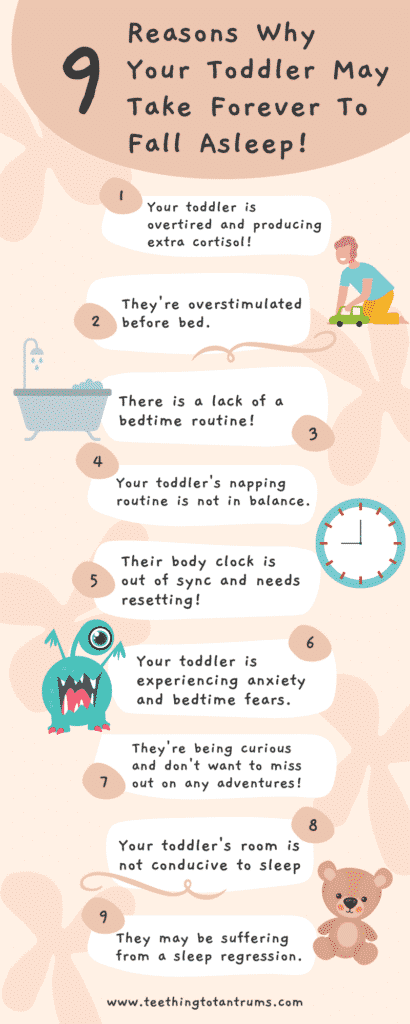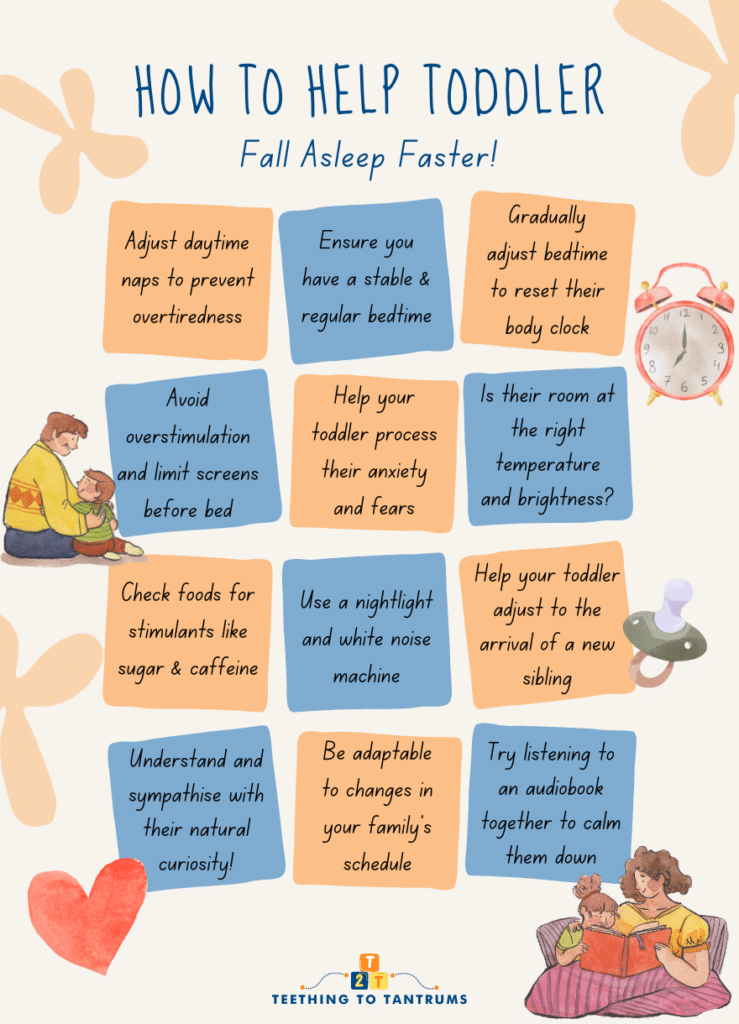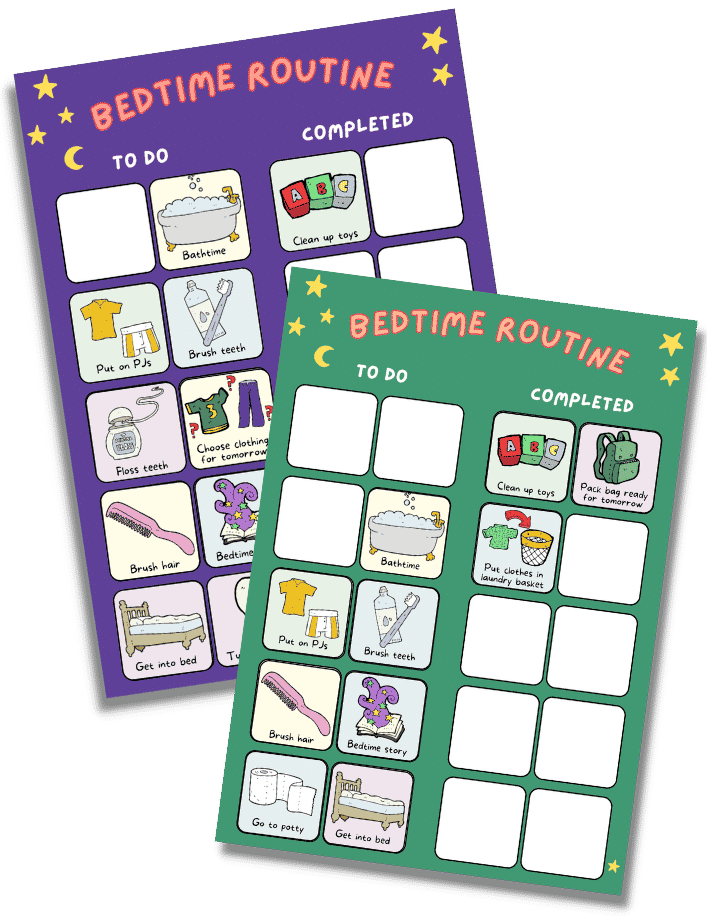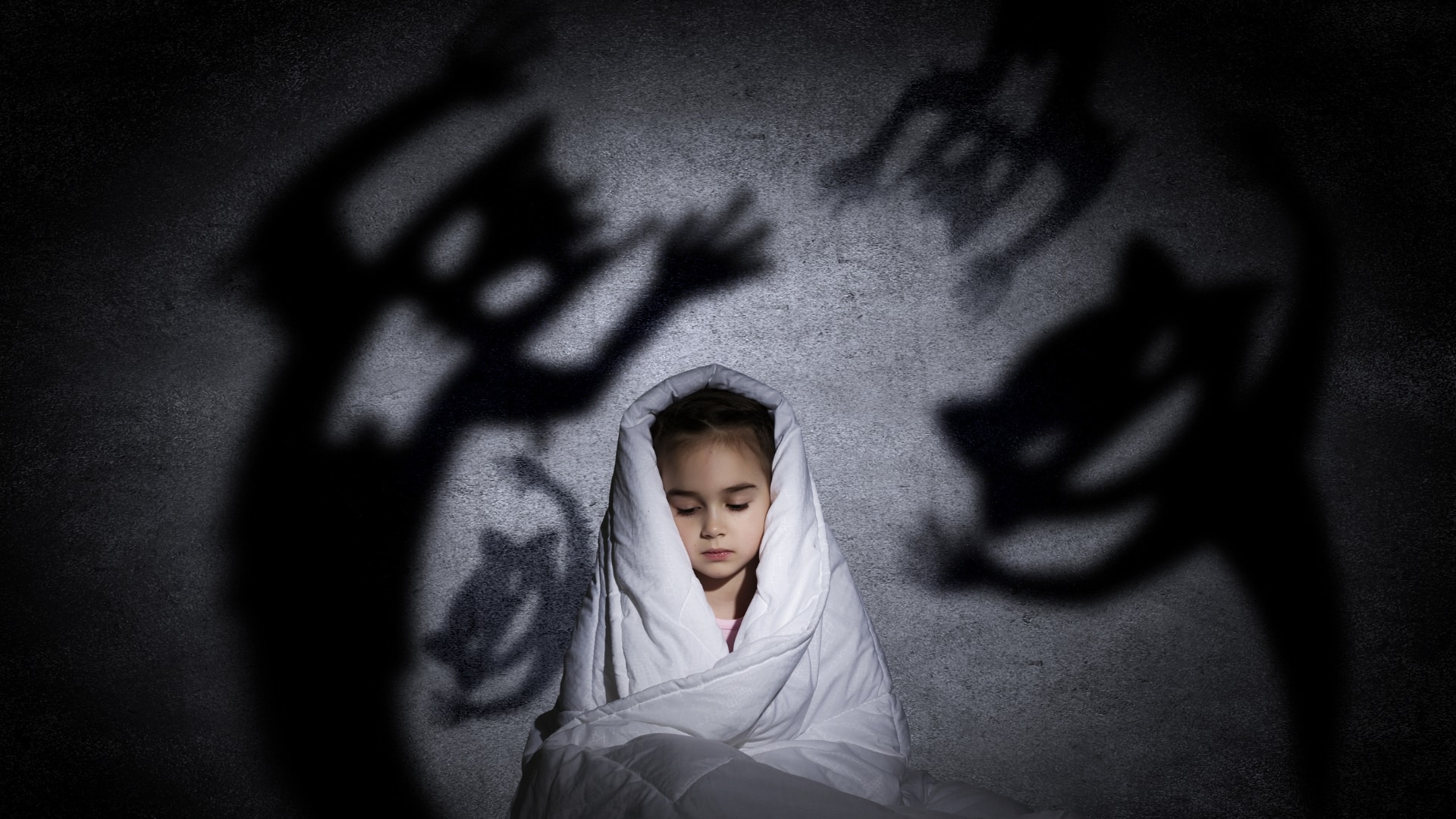If your toddler takes forever to fall asleep, don’t despair. Discover my simple tips to help them sleep better and give yourself a child-free evening. Say goodbye to frustrating bedtime struggles with these solutions for peaceful and enjoyable evenings.

Table of Contents
Key Takeaways
- To help your toddler fall asleep faster, establish a consistent bedtime routine and create a sleep-conducive environment by keeping the bedroom cool, dark, and cozy.
- Avoid screen time before bedtime and engage in calming activities, such as reading or taking a bath.
- Address any underlying anxiety or stress that may be affecting your toddler’s sleep and be patient and consistent in your approach to helping your toddler fall asleep, as changes may take time to take effect.
How Long Should It Take For A Toddler To Fall Asleep At Night?
Toddlers should be asleep between 10 and 20 minutes after they have been put to bed. Some children will fall asleep far more quickly, but your toddler should not take longer than 25 minutes to drift off to sleep. If they are, you need to look at the reasons why this delay is happening so you can get your evenings back on track.
Reasons Why Your Toddler Takes Forever To Fall Asleep
If your toddler takes forever to fall asleep regularly and it’s beginning to affect your toddler and family’s happiness, these are some of the common culprits that may need to be addressed:

- Your toddler is overtired. Bizarrely, an overtired toddler takes forever to fall asleep. This is because your overtired toddler’s body will produce excess cortisol and adrenaline for them to keep going… increasing the difficulty of relaxing at bedtime.
- They’re overstimulated. An overstimulated child in the run-up to bedtime will most definitely struggle to fall asleep as their brain struggles to settle.
- There is a lack of a bedtime routine. A healthy, consistent bedtime routine is the cornerstone to establishing good sleep associations to help your toddler fall asleep faster.
- Your toddler’s napping routine is not balanced. It’s important to get your toddler’s daytime sleep correct as this will go a long way in helping your little one be primed for sleep at the end of the day.
- Their body clock is out of sync. Many toddlers have circadian rhythms that get out of sync and need resetting by getting outside, waking up on time, and turning off screens before bed.
- Your toddler is experiencing anxiety or bedtime fears. It is very natural for toddlers to suffer from separation anxiety and become fearful of the dark which can stop them from wanting to fall asleep alone.
- They’re curious! Toddlers don’t like to be left out! So, saying goodnight and leaving them alone can be very difficult for them to understand.
- Your toddler’s room is not conducive to sleep. Is it too hot or too cold? Too light? Too loud? Have you recently moved from a crib to a big bed? Creating a peaceful bedroom will go a long way to helping your toddler fall asleep faster.
- They may be suffering from a sleep regression. At around 18 months your toddler may start to experience an 18 month sleep regression. Sleep regressions can be triggered teething or the arrival of a new sibling and as a result, it will make falling asleep much harder for your little one.
- Your toddler has become used to going to bed too late. Have you been on holiday recently? Have you moved house? Has there been a big change in your toddler’s life? There are lots of reasons why sleep schedules can go astray, but when you try to reestablish your healthy sleep patterns, you can find your little one does not want to go to sleep at their previous bedtime. This bedtime resistance will make it far harder for your toddler to go down to bed when they used to.
How To Get A Toddler To Sleep Quickly At Night?
Whether you’re a new parent or an experienced one, learning how to navigate a toddler fighting bedtime will always test you…
The good news is that if your toddler takes forever to fall asleep at night there are definitely tips you can try to get back on track (and quickly too!)
So, if you think your toddler takes forever to fall asleep because of any of the reasons I mentioned above, here are the important things that you can do to have a great little sleeper:

1. Adjust Daytime Naps To Prevent Overtiredness
Between the ages of 1 and 3, your toddler’s daytime nap needs will change and you will need to make sure that they are not getting too little or too much nap time.
Too few daytime naps will result in your toddler becoming overtired… And too much naptime will mean that they are not ready for bed at an appropriate time.
The good news is that there are a few general rules to follow to get the balance right…
- 1-year-olds need two naps per day.
- By 18 months, your child will transition into one afternoon nap taken after lunch for 2 hours.
- By the time your toddler is 3 years old, they will have dropped their naps. Apart from the occasional 45-minute after-lunch snooze on very busy days.
2. Ensure You Have A Consistent Bedtime Routine
I am always talking about how a consistent and calm bedtime routine goes a long way to getting little ones ready for sleep.
If your toddler takes forever to fall asleep, then the earlier you start with a bedtime routine the better. Therefore, if you do encounter delaying tactics, you limit the risk of ending up with an overtired child.
As they grow, your toddler will take their sleep cues from the regular nighttime routine of bath, book, and bed. However, using a bedtime routine chart will certainly help to create a relaxing bedtime routine and encourage your little one to go to sleep.
3. Gradually Adjust Bedtime To Reset Their Body Clock
Also known as the circadian rhythm, sometimes your toddler’s body clock gets out of sync and needs to be reset. In order to fix this, use a morning light to help wake your toddler earlier, avoid screens before bedtime as this will disrupt your child’s melatonin production, and keep bedtimes consistent and calm… even at weekends.
REMEMBER: You cannot dramatically change the timing of your toddler’s bedtime and expect them to stick to it. A toddler who takes forever to fall asleep will need to experience a consistent gradual change in order to adapt to a new routine.
For example, if your toddler is not ready for bed until 9 o’clock then bring bedtime forward gradually by 15 minutes each night until the desired bedtime is reached.
4. Avoid Overstimulation And Limit Screen Time Before Bed
Check the lead-up to bedtime and ask yourself these questions:
- Is your toddler using screens in the lead-up to bedtime?
- Is the bedtime routine happening at different times every day?
- Is your toddler not winding down at the end of the day?
- Are older siblings or family members creating excitement and energy in the evenings?
If you’re answering yes to the above questions, these could all be reasons why your toddler takes forever to fall asleep or stays awake until late.
To help your toddler fall asleep faster, reduce screen time before bed, maintain calm energy throughout the house in the evenings, and try putting your toddler to bed at the same time every night.
5. Help Your Toddler Process Their Anxiety And Fears
During toddlerhood, it is not uncommon for young children to become anxious about being left alone or fearful of the dark and this can be one of the reasons why your toddler takes forever to fall asleep.
If your toddler is anxious, or experiencing night terrors or nightmares, it is a good idea to come up with some strategies that make them feel safe. Children of this age feel more settled with a favorite toy to sleep with, a nightlight, and a spray bottle full of ‘monster repellent’ (tap water)!
NOTE: You must be patient with anxious children. To them, their fears are very real and scary. If your toddler keeps getting out of bed to seek your comfort, gently return them to bed and reassure them they’re safe.
6. Make Sure Their Bedroom Is At The Right Temperature And Brightness
Even as adults, we all have preferences on how hot or cold our bedrooms should be. So, if your toddler takes ages to fall asleep then check that they are comfortable.
They might be too hot or cold or the room may be too light…
Test a few different settings and see if this fixes the issue of your toddler taking a long time to fall asleep.
TOP TIP: In summer you may have to consider using blackout blinds to help your little one fall asleep and change their pajamas to suit their comfort levels.
7. Check Your Toddler’s Food For Hidden Stimulants
Yes. You heard that right. Some foods and drinks contain ingredients that overstimulate your toddler and get them hyper right when you want them to start calming down.
These include caffeine, sugar, and refined salt. So, be sure to pay attention to food labels for these ingredients and aim to cook evening meals from scratch whenever you can.
8. Use A Night Light And White Noise Machine
A nightlight and white noise machine can also go a long way in helping your little one settle to sleep.
While a night light will reduce fears of the dark without being too bright, a white noise machine can be very soothing and help to block out distracting noises.
This nightlight by LICKLIP is a firm favorite with toddlers as it projects pretty images on the walls and has a range of colors. It’s one of the best nightlights on the market today to promote healthy sleep habits:
Finding the right night light for your child can be quite a task. You want something safe, comforting, and practical. The Cozy Starry Night Light ticks these boxes, with eye-friendly warm lighting and an easy-to-use dimmer.
Its gentle glow makes it the best night light for feeding baby, diaper changes, or comforting your little one back to sleep.
As your baby grows the Cozy Starry Night Light's starry sky projection can provide comfort and gentle quiet time stimulation. Its soft lighting ensures a dreamy, peaceful environment, supporting your baby’s natural sleep cycle.
It really is a fantastic nightlight (at a very reasonable price!)
- Eye-friendly warm lighting with adjustable brightness.
- Includes a timer function for convenience.
- Projects a starry sky that is soothing for little ones.
- Rechargeable battery, so it's very portable.
- A USB adapter is not included for charging.
- The star projector is static without motion (however, this is ideal for very young babies and toddlers).
- Battery life varies based on the brightness settings.
9. Try Listening To An Audiobook Together
I have always found playing an audiobook is an ideal way to settle a toddler who struggles to fall asleep. Singing lullabies will have a similar effect.
Bear in mind that your child will often want you to play the same story over and over again each night… but listening to the comforting and familiar story will help your little one fall asleep very successfully!
Audiobooks are also wonderful tools for quiet time sessions throughout the day.
10. Understand Their Natural Curiosity
Toddlers are naturally curious and their brains are like sponges.
Put simply, your toddler will take a long time to fall asleep if they struggle to switch off at the end of the day… Especially if your child thinks they’re missing out on whatever it is you might be doing once they have gone to bed!
Explain to your toddler that you now have some grown-up work to do that they’ll find really boring and talk about an exciting activity you will do together so your toddler has something to look forward to tomorrow.
11. Be Adaptable To Changes In Your Family’s Schedule
Sometimes events can flip your little one’s sleep schedule on its head causing them to take forever to fall asleep.
So, if your toddler has recently dropped their daytime nap but started daycare or become unwell, you may need to bring the nap back until they adjust to their new sleep requirements.
You can also bring your toddler’s bedtime forward if they have been in daycare all day – just until they get used to the new routine.
12. Help Your Toddler Understand That Having A New Sibling Does Not Mean They Can Return To Baby Behaviors
When a new sibling joins the family, a lot of toddlers will witness baby behaviors such as waking up every few hours, crying, getting extra attention, and fussing which can cause them to copy these behaviors to get more attention…
This behavior regression is perfectly normal.
However, how we react to these behaviors will make the difference between months of sleepless nights or just a few days of out-of-character behavior.
Be sure to watch this video about helping your toddler adjust to a new sibling to learn more about navigating this phase.
13. Consider Gentle Toddler Sleep Training Methods
If you have tried all of the suggestions I have outlined above, and you’d have limited success, it’s time to try using a gentle sleep training method.
Typically, I recommend the “I’ll Be Back” and the “Gradual Retreat” toddler sleep training methods. Depending on the severity of the sleep problems, I might use a different technique.
To learn more about how to steep train a toddler, read this post: Sleep Training A Toddler
NOTE: I never recommend the Cry-it-Out Method as a sleep training method.

How Much Sleep Does Your Toddler Need?
If your toddler takes forever to fall asleep, check the following guidelines from the Sleep Foundation to see if they’re having too much or not enough sleep:
| 1 to 2-Year-Old Sleep Recommendations | 3 Year Old Sleep Recommendations |
| Children between the ages of 1 and 2 years old need 11-14 hours of sleep in 24 hours. | By the time your toddler is 3, they will need 10-13 hours of sleep in a 24-hour period. although, most children will have dropped their daytime naps by this stage. |
| Between the ages of 1 to 2 years, children will still require a nap or 2 per day. | Most 3 year olds will have dropped their daytime naps. |
| You should aim for a child aged 1-2 years to go to bed between 6.30 and 7.30 p.m. | Bedtime for 3-year-olds will be between 6 pm and 8 pm depending on what your evening routine is and how much sleep (if any) your toddler has had during the day. |
Looking to get your little one to sleep quickly and effortlessly? Check out my Bedtime and Nap Cheat Sheet and master the art of making daytime naps and bedtimes as seamless as possible.
A bedtime & nap cheat sheet so good your little one will ask you to put them to bed...
Laura Williams "This is a life saver! I'm so glad I downloaded your bedtime & nap cheat sheet. My little one actually asked me to put him to bed last night! Unbelievable! Thank you so much!"
Click Here For The FREE Cheat Sheet
Toddler Takes Forever To Fall Asleep: Frequently Asked Questions
Looking for more information about why your toddler takes forever to fall asleep? Here are the most common questions answered just for you.
Q: Is it normal for toddlers to take a long time to fall asleep?
A: Yes, it is normal for toddlers to take a long time to fall asleep. Toddlers have a lot of energy and can sometimes struggle to wind down and sleep at night. However, if you are concerned that your toddler’s sleep problems are the result of an underlying issue, please contact your pediatrician for more advice.
Q: How long should it take a 2-year-old to fall asleep?
A: It can take a 2-year-old anywhere from 10 to 20 minutes to fall asleep. However, every child is different, and some may take longer or shorter depending on various factors such as their sleep environment, bedtime routine, energy levels, and whether they are unwell. If your 2 year old takes forever to fall asleep consistently, seek advice from your trusted local sleep consultant.
Q: What time should a 2-year-old be asleep in bed by?
A: I recommend that a 2-year-old should be asleep by 7.30 pm, 8 pm at the latest. However, every child is different, and you should consider factors such as your child’s sleep needs, nap schedule, and your family’s routine when determining their bedtime. The most important factor is that your 2-year-old’s bedtime happens at the same time every night.
Q: Why does my toddler have a hard time falling asleep?
A: There could be several reasons why your toddler is having a hard time falling asleep, such as an inconsistent evening routine, too much screen time in the hours before bedtime, underlying anxieties, or overtiredness. It’s important to identify the root cause of the problem and make any necessary changes to help your toddler fall asleep more easily.
Q: How can I help my toddler fall asleep faster?
A: To help your toddler fall asleep fast, you can establish a consistent bedtime routine, create a sleep-conducive environment, avoid screen time before bed, and engage in calming activities such as reading or taking a bath. Additionally, addressing any underlying anxiety or stress can also be helpful. Check the areas covered in this post to see which may apply to your little one and then take steps to re-establish a healthy, consistent bedtime routine that limits screen time and reinforces strong sleep associations, backed up by age-appropriate daytime naps.
Q: How Do I Use A Bedtime Routine Chart?
A: To use a bedtime routine chart, start by creating a list of the activities your child needs to complete before bed, such as brushing teeth or reading a book, and then create a visual chart or checklist that your child can follow each night. Be sure to involve your child in the process and make it a positive, fun experience. I have created a PRINTABLE bedtime routine chart which you can download for FREE here: Bedtime Routine Chart.
Need More Parenting Help?
- Download our FREE Bedtime & Nap Sleep Cheat Sheet. It’s a free, easy-to-use and proven formula designed for parents of 0-5 year olds to master the art of consistently undisturbed and restful sleep without the yelling, nagging or exhausting long-winded evenings.
- Check out our Parenting Toolbox. You’ll get access to expertly-chosen products that you can guarantee are the best for your little one and your wallet.
- Are you looking for personalized guidance to navigate the challenges of parenting? I offer 1-on-1 consultations to bring you tailored strategies and actionable advice to help support your child's growth and well-being with confidence.

A bedtime & nap cheat sheet so good your little one will ask you to put them to bed...
Laura Williams "This is a life saver! I'm so glad I downloaded your bedtime & nap cheat sheet. My little one actually asked me to put him to bed last night! Unbelievable! Thank you so much!"
Click Here For The FREE Cheat Sheet




